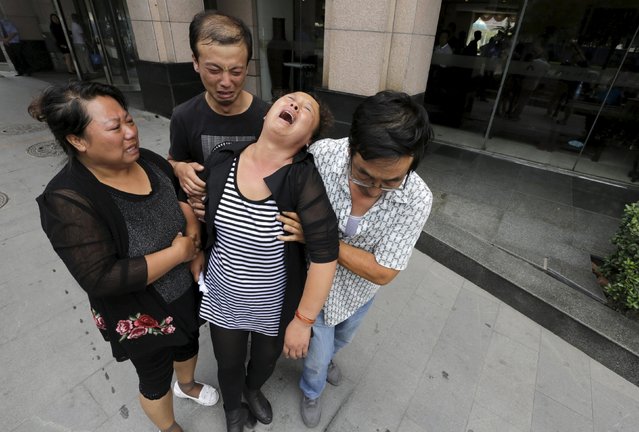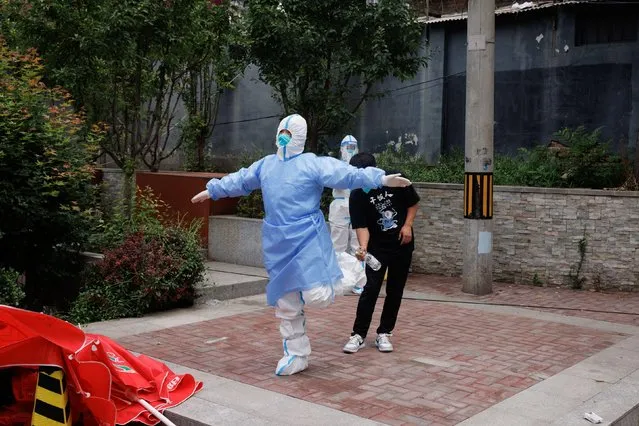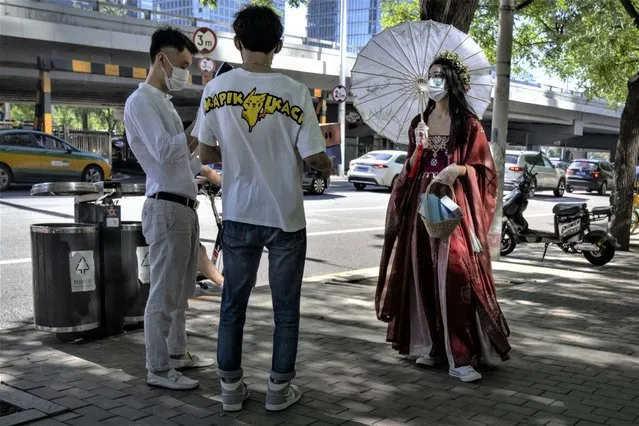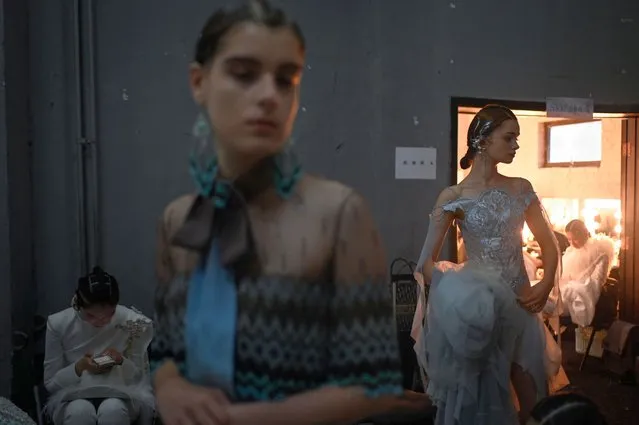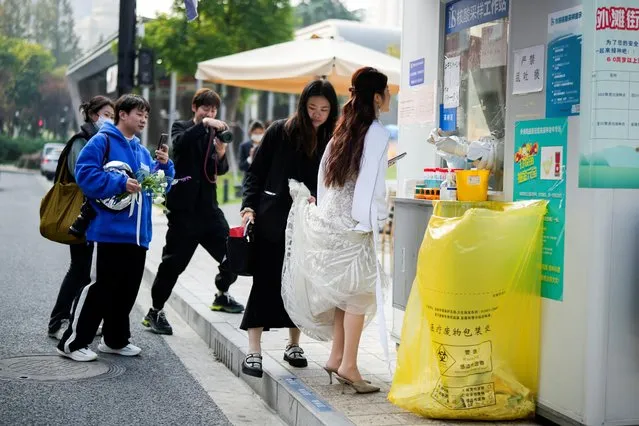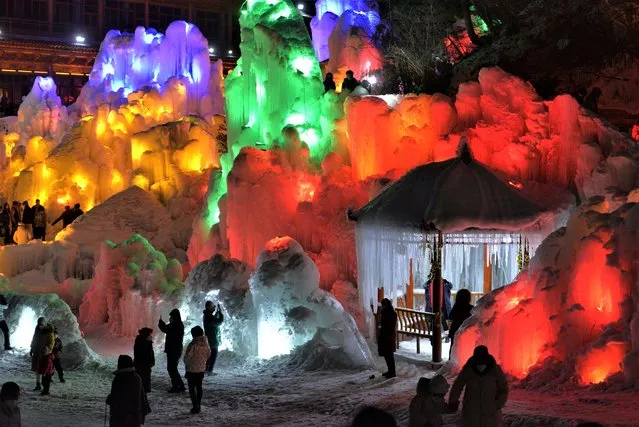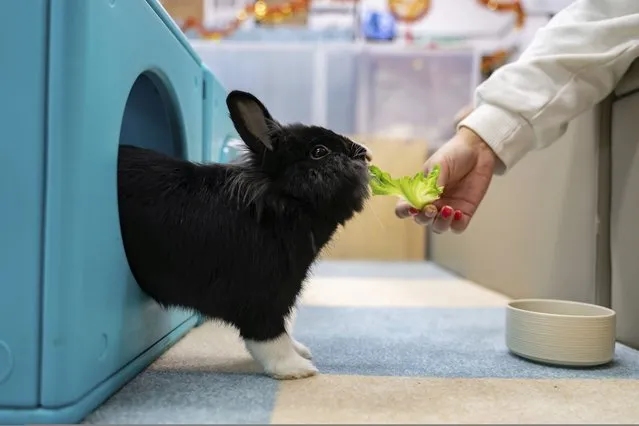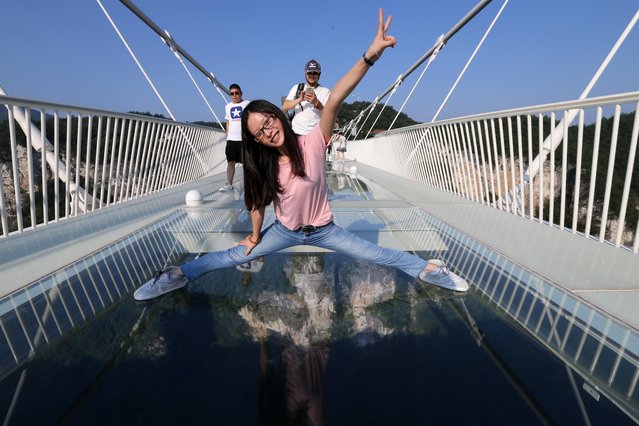
A tourist poses on the glass-bottom bridge at Zhangjiajie Grand Canyon on August 20, 2016 in Zhangjiajie, Hunan Province of China. The Zhangjiajie Grand Canyon's glass-bottomed bridge welcame its trial operation on Saturday and about 8,000 tourists crowded to view the grand glass bridge. (Photo by VCG/VCG via Getty Images)
28 Aug 2016 09:51:00,post received
0 comments

